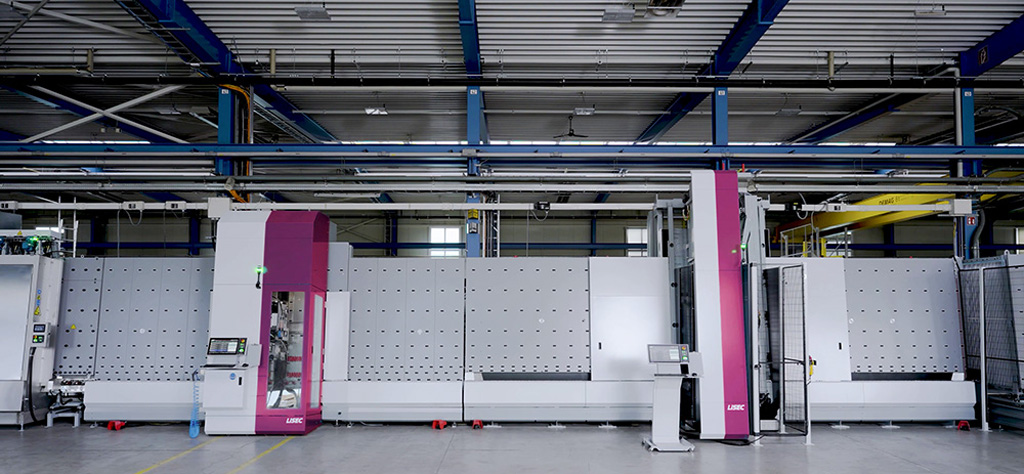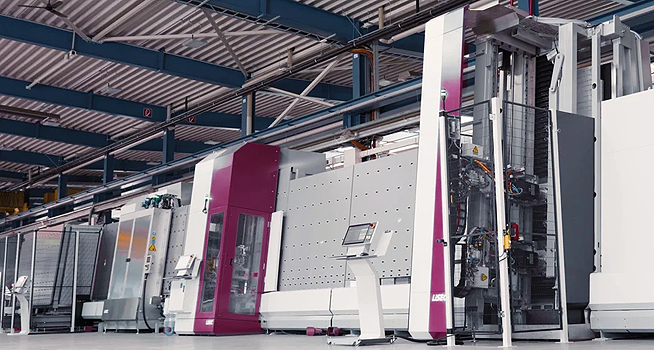The new LiSEC SplitFin line with integrated sorting storage systems shows how intelligent automation and split processes can increase efficiency and ergonomics.
The challenge was to develop a production line that required as little operator intervention as possible, ideally with just one person. The solution: an automated line from cutting to SplitFin processing of the shower door, controlled by acoustic signals and requiring manual intervention only when necessary. After the SplitFin, the panes are transported on glass racks to the tempering furnace.
Processing procedure
- Manual start: the operator breaks open the cutting patterns on the cutting table and starts the process at the touch of a button.
- Automatic transport: panes are transported to the input storage via a tilting table.
- SplitFin: processing takes place on the SplitFin line on two specialised processing towers, which perform different tasks:
- EPS-C: the vertical grinding and polishing machine handles all edge processing. It operates fully automatically with fast double grinding heads and is designed for special shapes and radii. Thanks to floating tools (LiTEC Slider), the EPS-C doesn’t just grind and polish. It now adds precise seaming, a brand-new feature that delivers reliability and efficiency.
- Internal processing tower (e.g., MRX-B): this second tower is responsible for internal processing such as drilling, cutouts (e.g.: “Mickey Mouse” cutouts) and other individual processing steps. Parallel processing in both towers significantly reduces the cycle time. While one pane is being drilled, the next one is already in the edge machining process.
- Output storage: after processing, the panes are automatically transported to the output storage. When the output storage is full, the operator receives an acoustic alert.

The line has a modular design, and the automated storage buffers can be integrated into both new and existing systems, provided there is sufficient space available. A very practical feature is that the solution also works on one side at either end of the processing line, which brings ergonomic advantages by eliminating loading and unloading and reducing the distances operators have to walk.
The buffers are currently designed for standard formats (up to 3,210 by 2,000 millimetres). The machines in the line, especially the EPS-C and MRX-B, are flexible in use and are also suitable for other applications such as furniture glass, partition walls or facade elements.





